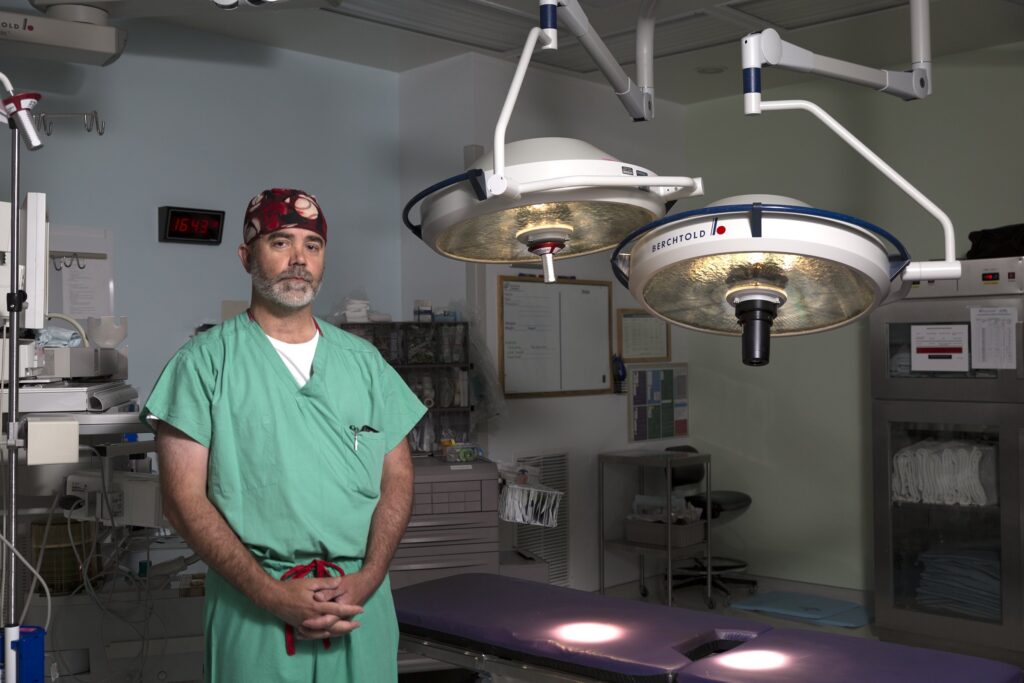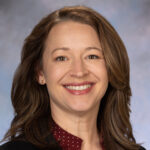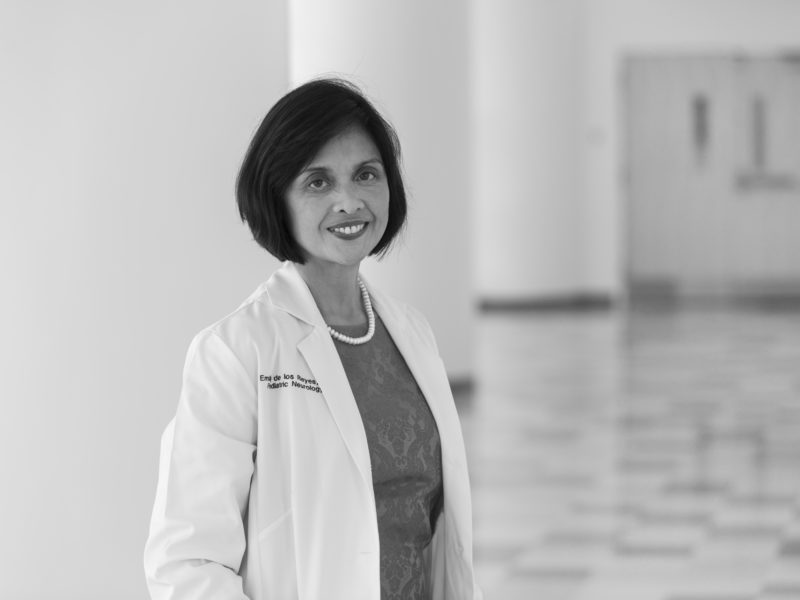4 Questions With Jeffrey Leonard, MD
4 Questions With Jeffrey Leonard, MD https://pediatricsnationwide.org/wp-content/uploads/2024/05/071316bs159c-1024x683.jpg 1024 683 Abbie Miller Abbie Miller https://pediatricsnationwide.org/wp-content/uploads/2023/05/051023BT016-Abbie-Crop.jpg- May 02, 2024
- Abbie Miller

Jeffrey Leonard, MD, is chief of Neurosurgery and the Robert F. & Edgar T. Wolfe Foundation Endowed Chair in Neurosurgery at Nationwide Children’s Hospital. He is also a principal investigator in the Center for Childhood Cancer Research in the Abigail Wexner Research Institute and a professor of Neurological Surgery at The Ohio State University College of Medicine.
Dr. Leonard, who joined Nationwide Children’s in 2014, has more than 20 years of experience in pediatric neurosurgery. He is renowned for his expertise in specialized neurosurgical procedures, such as selective dorsal rhizotomy (SDR) and the surgical treatment for highly complex brain tumors.
Q: What drew you to becoming a pediatric neurosurgeon and focusing on areas like SDR and complex brain tumors?
A: Medical school was like drinking from a fire hose. I appreciated the technical challenges of these procedures, and the ability to change the way kids live their lives. When kids have mobility problems that could be helped with SDR or life-threatening brain tumors, I have the ability to turn that around for them. T.S. Park showed that there was an opportunity with SDR in the response to purposeful injury of sensory nerves. Seeing how lives can improve as a result drew me to this patient population.
Q: SDR is a complicated procedure for patients with spasticity, often children with cerebral palsy. What do you consider to be the most important benefits and challenges of the procedure?
A: SDR success has a lot to do with patient selection. Educating families so that they understand the procedure enables them to be part of the decision-making process. Shared decision-making with the families sets us up for success. In terms of the procedure itself, it helps those with cerebral palsy to live full and productive lives and maximize their quality of life. Over the years I’ve seen patients blossom after surgery. From becoming academic all-Americans, going to medical schools and practicing medicine, they can achieve dreams that were out of reach before.
Q: What advice would you give a young physician considering a career in neurosurgery?
A: Focus on whatever you are doing in the moment: Be in the moment at home and at work. It is a demanding yet rewarding job. There will be long peaks and valleys over the course of your career, so make sure you love what you are doing.
Q: What is your favorite thing about your job?
A: The people. The people are what get me moving every day. The relationships and interactions I have with my staff, colleagues and patients have been the most rewarding part of my job.
I’ve been in this career long enough now that I’ve been able to watch patients grow up, graduate and lead fulfilling lives. I like knowing how care I provided helped give these kids a better life. It’s fun and rewarding.
Inside the OR With Dr. Leonard
About the author
Abbie (Roth) Miller, MWC, is a passionate communicator of science. As the manager, medical and science content, at Nationwide Children’s Hospital, she shares stories about innovative research and discovery with audiences ranging from parents to preeminent researchers and leaders. Before coming to Nationwide Children’s, Abbie used her communication skills to engage audiences with a wide variety of science topics. She is a Medical Writer Certified®, credentialed by the American Medical Writers Association.
-
Abbie Millerhttps://pediatricsnationwide.org/author/abbie-miller/
-
Abbie Millerhttps://pediatricsnationwide.org/author/abbie-miller/
-
Abbie Millerhttps://pediatricsnationwide.org/author/abbie-miller/
-
Abbie Millerhttps://pediatricsnationwide.org/author/abbie-miller/
- Post Tags:
- Neuro-Oncology
- Neurosciences
- Neurosurgery
- Posted In:
- Features
- Second Opinions







